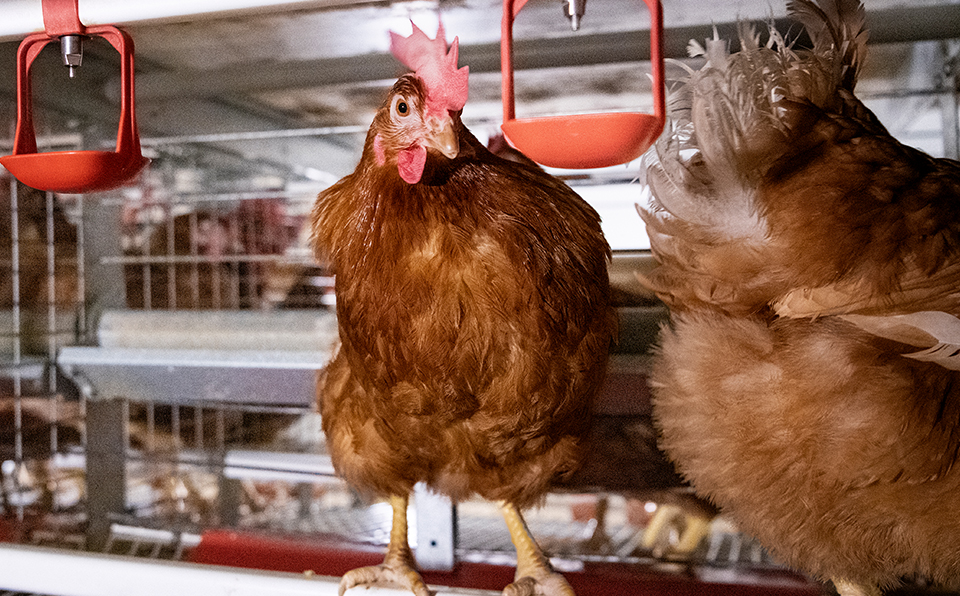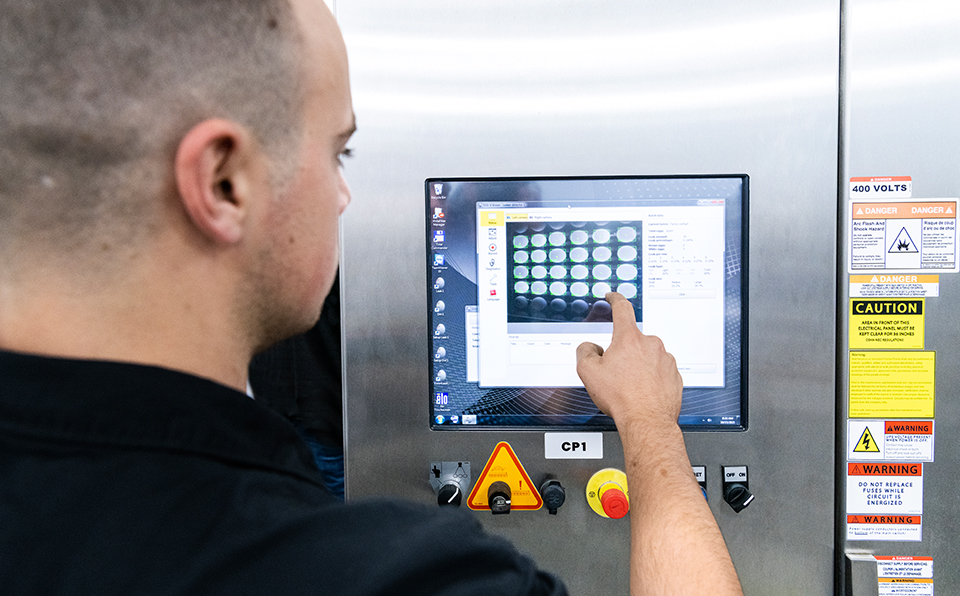
How circular economy thinking is making egg farms even more sustainable
By Egg Farmers of CanadaA circular economy is one where resources are reused, repurposed or recycled rather than discarded. This produces significant social, economic and environmental benefits. While this concept is rapidly gaining interest in global sustainability circles, how does this way of thinking apply to egg farming?
This is exactly what researchers at Université Laval set out to discover. A first-of-its-kind study led by Egg Farmers of Canada’s Research Chair in Economics, Dr. Maurice Doyon, developed a way to measure circular economy on Canadian egg farms. The results outline steps farmers can take to improve their farm’s circular economy.
Improving an egg farm’s circular economy
Researchers identified 25 indicators and 14 specific on-farm measures that can improve an egg farm’s circular economy. These factors all work together in concert—and all are equally important. From hen productivity to energy use to water management and more, these measures form the key ingredients of circular economy on egg farms.
Here are a few examples of the measures the researchers identified.
Manure management

Increasing the portion of manure that is repurposed and recycled directly contributes to a farm’s circular economy. For example, some farmers compost, use manure on their farmland or work to repurpose manure into value-added products sold to other farmers and garden supply outlets.
Energy use and emissions

Some farms are fueling their barns and homes with renewable energy sources, as well as decreasing power consumption by switching to LED lighting and other net-zero building practices. Sourcing inputs like feed from local suppliers also decreases emissions by minimizing travel distances.
Feed and water practices

Smart technology in barns helps farmers monitor their flocks, including barn temperature, feed and water consumption. This data also helps farmers apply circular economy thinking on their farm. For example, farmers consider how much feed or water their flock is consuming per egg and compare this to targets and averages from similar farms. The result is the ability to identify opportunities to reduce waste by improving the efficiency of feed and water delivery.
Farmers are embracing new technology that supports on-farm circular economy
The innovative National Environmental Sustainability Tool is an on-farm tool egg farmers use to track their progress on a range of sustainability measures, including many of the circular economy measures highlighted by Dr. Doyon and his team of researchers.
This tool makes it possible for farmers to measure, monitor and manage their environmental footprint by reviewing a sustainability assessment of their farm and benchmarking their results against similar farms. The first version is already at work on farms across Canada, and the tool is set to gain expanded functionality in early 2023.
Dr. Doyon’s important research on egg farm circular economies was supported by Egg Farmers of Canada’s comprehensive research program that drives industry innovation. From economics, to animal welfare, to sustainability and public policy, our ongoing support of leading research across Canada is contributing to the long-term sustainability of Canada’s egg farms. Click here to learn more about our comprehensive research program.